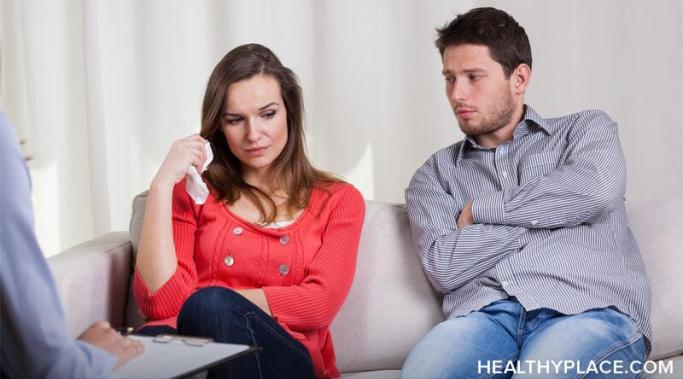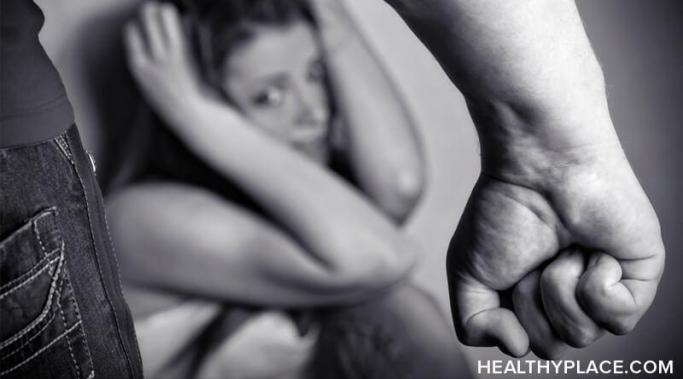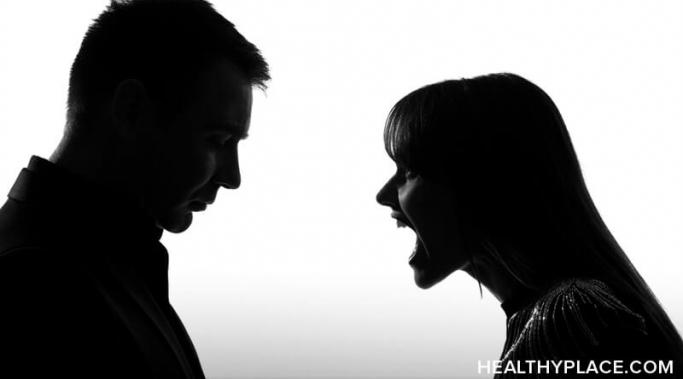Learning verbal abuse coping skills is more important than you might think. Common misconceptions about verbally abusive relationships are that verbal abuse is solely characteristic of romantic relationships and that you can simply leave. Verbal abuse can be present in relationships involving parent and child, siblings, friends, romantic relationships, co-workers, school-yard bullies -- the list continues. Considering people cannot immediately leave their family, quit their job, or change schools, it can be life-changing to develop verbal abuse coping strategies such as learning the facts about verbal abuse, response techniques, and ways to love yourself amidst the verbal abuse.
People often advise others to “just leave” and while this advice likely comes from a place of love, it may not be realistic. With that being said, verbal abuse does not have to plague your life. If you can escape, do so promptly. Your future self will thank you. These verbal abuse coping skills and tips are for relationships that you cannot readily exit and should be helpful until you’re able to remove yourself from the situation entirely.
Verbal Abuse in Relationships
My name is Emily J. Sullivan and I’m thrilled to join the HealthyPlace blogging team as the newest author of the Verbal Abuse in Relationships blog. My earliest friendships and my first dating experiences were rampant with dysfunction. Con men, mean girls, gaslighters, and narcissists have always found their way into my heart. I’m not sure if it’s because I could always see the good in people or if I was an easy target. Whatever the reason, I spent years of my life in relationships and friendships with people who have been able to emotionally overpower me with verbal abuse. Verbal abuse can mentally cripple a person, diminish their self-worth, and alienate them from the loving relationships in their lives.
After verbal abuse, my mental health didn't automatically return to normal. The first year after my verbally abusive relationship ended was tough. Not only did I struggle with the after-effects of verbal abuse -- namely anxiety, depression, and low self-esteem -- I also met someone new (let's call him A) and fell in love all over again. A was everything I had ever wanted in a partner and my instincts were telling me "he's the one" from the day we met. So why couldn't I let myself be happy? With my verbal abuser firmly out of the picture, why was I still plagued with anxiety? Mental health problems may follow us long after verbal abuse ends.
If your verbal abuser is a narcissist, what are the signs? As we know, it's important to spot the signs of verbal abuse early on in a relationship. However, recognizing the issue is only part of the process; gaining insight into your verbally abusive relationship can be the start of the emotional healing process, but how do you begin to understand it? There are many complex reasons why verbal abuse happens, but personality disorders are among the most common. Realizing you're in a verbally abusive relationship with a narcissist can be a real light-bulb moment, so what are the signs?
Here's how it feels when people tell you that your verbally abusive ex-boyfriend is a "nice guy." At first, it makes you doubt yourself, as if you could have made the whole thing up or that you must be overreacting. It feels as though the whole world is reinforcing the idea that well-established, charismatic men cannot possibly be held accountable for abuse. It's frustrating and maddening that no one is willing to recognize the pain he inflicted on you. You cry, shout, and doubt yourself some more. But then you stop being angry. You stop expecting others to understand. Instead, you nod and smile and make peace with what you know to be true. And here's to deal with it when your verbal abuser is a nice guy.
So, you've spotted the signs of verbal abuse in your relationship and you want to end the verbal abuse. You know that blaming, shaming, threatening and name-calling does not equate to a happy or healthy partnership. You realize that maybe -- just maybe -- you deserve better. So how do you make it stop? Is ending verbal abuse possible?
One of the questions many abuse victims will ask themselves is, "Is it my job to warn my abuser's new girlfriend of his behavior?" And I must admit, this has stumped me every time it's been brought up in the comments section of a Verbal Abuse in Relationships blog post. When my abusive boyfriend broke up with me, I swiftly deleted him from all of my social media accounts. We also lived in different cities, so when he did meet someone else I didn't know about it until months afterward. But when the inevitable photos of him with other women found their way into my news feed, I couldn't help wondering if it was my job to warn my abuser's new girlfriend of what he was capable of.
The distinction between verbal and physical abuse is something I have questioned ever since my abusive relationship ended. My ex-partner shoved me, pushed me, kicked me and forced me out of his way when we argued. He raised his fist and made threats, but never actually hit me. Does this mean I was verbally, physically abused or both? I think the answer depends on where we, as individuals, draw the line.
Could you be an easy target for verbal abuse? Or have you ever wondered why you were verbally abused in a relationship? By that, I don't just mean why your partner was abusive, but more specifically why he picked you as his target. The general consensus seems to be that anyone can fall prey to an abuser, but is that really the case, or are some people more susceptible to emotional abuse and manipulation than others? Are some of us easy targets for verbal abuse?
When I first realized I'd been in a verbally abusive relationship, I asked myself, "Why me?" and "Why does verbal abuse happen?" but there were no straightforward answers to these questions. The articles I read online echoed the reassurances of those close to me -- that the abuse wasn't about me, it was about my ex. "If it hadn't been you it would've been somebody else," I kept hearing, doubting if this was really the case. Years later, I still find myself wondering whether the abuse was entirely his fault or if I could have done more to prevent it. I still wonder why verbal abuse happened.









